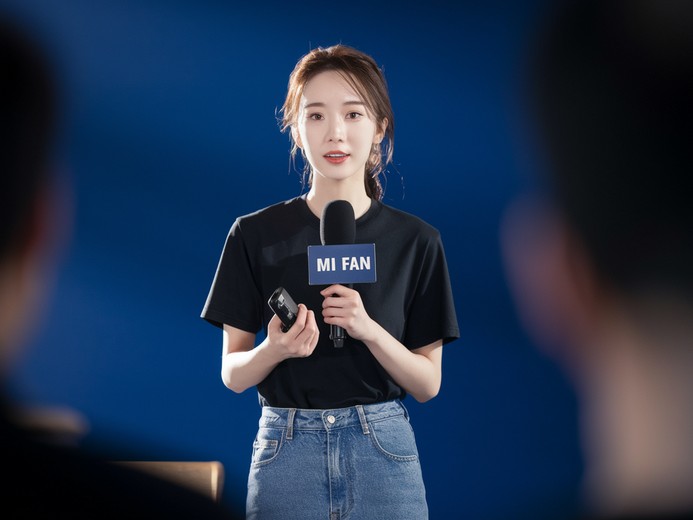
The Yangtze River follows the previous wave, the recruitment industry is unfolding.
“3 post-00s dropout students, using AI to beat up industry veterans” is the dramatic plotline.
In the recent period, the AI recruiting company Mercor announced the completion of a $100 million Series B financing round, with a valuation of $2 billion (approximately RMB 14.5 billion), which is 8 times the valuation from five months ago.
LinkedIn achieved a $2 billion valuation after 8 years in the online recruitment industry.
The creation of Mercor, a company founded in 2023 by three 00s (people born in the 2000s) who dropped out of college, is even more terrifying. This year, these three individuals are only 21 years old. In other words, these three 00s have completed the same path that took their predecessors 8 years to accomplish, in just 2 years.

The business’s performance growth has been really impressive, which is why investors are optimistic about it.
Mercor is considered one of the fastest-growing companies in the technology industry. Last September, the company’s monthly ARR growth rate reached 50%. To date, the company has achieved a breakthrough of $75 million ARR within 2 years, with customers including AI labs such as OpenAI.
Mercor leverages AI technology to innovate the recruitment industry. Compared to other AI recruitment products, Mercor has done what differently
Three dropout 00 post-90s, built a unicorn worth billions in 2 years
The most valuable asset on the balance sheets of tech giants today is not cash flow, but how many geniuses with the ability to rewrite the history of AI are hiding.
The appearance of Mercor is mainly to seek out these brains with decisive significance for top technology companies and leading AI laboratories.

The three young men who accomplished such a feat are all 21 years old.
In 2022, the three founders of Mercor, Brendan Foody (CEO), Adarsh Hiremath (CTO), and Surya Midha (COO), joined forces, laying the groundwork for the company that would later stir up a talent revolution in the AI industry.
The three young men at the start of their entrepreneurial journey did not have a clear business plan. They simply opened a studio and wanted to quickly learn how to develop software to help startups. Eventually, they recruited some talented individuals from India.
With no external support, three young men achieved a monthly revenue of $1 million and a net profit of $80,000.
The joy of success did not make the founders of Mercor fall into a frenzy of irrationality. Instead, it made them realize that the traditional manual recruitment model cannot achieve scalable effects and has a very low ceiling.

If the recruitment process can be fully automated, it will trigger a “revolution” in the recruitment industry. At this time, ChatGPT has emerged, and the combination of AI and recruitment has given them a glimmer of hope.
Mercor was founded in 2023. At that time, the AI industry was engaged in an intense talent war, which was becoming increasingly intense.
Mark Zuckerberg even started doing headhunting work, playing the “Domineering CEO Falls for You” plot, personally writing letters to DeepMind researchers, sincerely inviting them to jump ship and join Meta. Microsoft and Google were even more ruthless, spending large sums of money to acquire the Inflection AI and Character.AI research teams in succession.
The essence of AI competition is the pursuit of top talents. Without an outstanding team, even the most powerful computing power is just idle hardware. As the GPU king of Nvidia said: “Talent is the amplifier of technological iteration. The same GPU can create a hundredfold value in the hands of a genius.”

The talent in the AI era is much more valuable than before. Mercor has exactly tapped into this trend.
In just two years, Mercor’s ARR reached $75 million, and it is expected to achieve $10 million in profits and $70 million in revenue this month, with a valuation of $2 billion.
According to information provided by CHINA HEADHUNTER, LinkedIn, a global giant that also does recruitment, took 8 years from its inception to a valuation of $2 billion.
The Mercor company experienced a rocket-like growth rate, completing in 2 years what it took the industry leader 8 years to achieve, sparking a technological revolution in the recruitment industry.
Precision and automation, Mercor’s two winning strategies
Mercor offers a different approach from traditional recruitment. It allows you to specify the type of person you’re looking for, and the platform will help you find the right talent.
Specifically, Mercor’s recruitment is divided into three steps:
The first step is to tell it what kind of talent you want, including the skills required for the position, the budget, and other information, and then it will provide you with candidates who match your requirements.

The second step, and also the most important one, Mercor will evaluate the quality of the resume, browse the personal portfolio website, Twitter and GitHub profiles, and interview the candidate’s core skills, in order to find the most suitable candidate.
The third step, after you have selected a candidate, Mercor can complete the seamless onboarding process, and you only need to pay the talent fee on a regular basis. At the same time, Mercor can also help you give bonuses to employees, and even fire employees.
In the fee mode, Mercor adopts the traditional headhunting fee model for employers, but there is no fixed proportion. For some clients, Mercor’s fees may exceed 30%, while for others, it may be less.
In Shenzhen AI headhunter Suntzu Recruit’s view, Mercor’s customers are usually more concerned with quality than price. If people are satisfied, how much fees are charged is usually a secondary consideration for customers.

Currently, Mercor’s main revenue comes from cooperation with large AI laboratories, including the world’s top five AI laboratories, such as OpenAI. Some AI laboratories even recruit all their researchers through the Mercor platform.
Aside from pursuing recruitment flow automation and precise matching, the real strength of Mercor lies in its unique understanding of recruitment demand matching, interaction mechanisms, and talent pools.
Firstly, hiring demand matching.
Mercor believes that the success or failure of recruitment does not depend entirely on the skills required for the position. Different companies have different factors that they value for the same position, so Mercor needs to adjust constantly based on the company’s needs.
Therefore, Mercor has not customized its talent prediction for a specific position, but has built a technology that can be widely used, allowing it to seamlessly solve the matching problem across companies and positions.

In concrete terms, Mercor’s AI-powered interview assistant can immediately process a candidate’s background information and then provide customized interviews, regardless of the position they are applying for, and can initiate the interview system in less than 10 seconds.
This not only means that applicants can match jobs that better fit their own experiences, but the hiring unit can also use this matching mechanism to find customized talents that are not in the traditional sense.
Increased speed and precision have resulted in a net retention rate of over 100% in Mercor’s collaboration with client employers.
Secondly, innovation in the interactive mechanism.
The Mercor team believes that chat (dialogue) is the core of all future UIs. Therefore, the initial version of Mercor is built around the chat interface.
This design allows users to hire someone without clicking a button, but instead directly telling the chatbot to hire that person. They believe that future web applications will disappear, and web application interactions will be implemented solely through chat.
China AI headhunter later recognized that a simple chat interface was too advanced, the implementation cost was too high, and the market’s education level was also not high.

The input text does not require translation.
The design of Mercor’s UI currently combines the advantages of both, without fully chat-based or using only traditional UI design.
Thirdly, Mercor pays particular attention to the expansion of its talent pool and has established a global talent circulation strategy.
The global talent circulation platform created by Mercor has provided greater arbitrage opportunities for job seekers, employers, and itself, given the economic disparities between different countries and regions.

Applicants can find higher-paying jobs across countries and regions, and companies can also recruit the talent they need from a wider range of candidates, which undoubtedly increases Mercor’s profit margins.
The workforce that finds jobs through Mercor is currently the highest in the United States, at around 60%, and the customers are also mainly from the United States. Ultimately, Mercor hopes to establish a globally unified labor market.
Two sides of AI recruitment: efficiency improvement and instrumentalizing
The big companies are crazily obsessed with AI recruitment besides the soaring valuation of Mercor.
According to statistics from the relevant China recruitment agency, more than 60% of the Fortune 500 companies have deployed AI recruitment systems.

The average HR replaced by AI in four years is 16%, which means one out of six HR will be eliminated. A certain bank’s campus recruitment uses AI interviewers to interview 5,000 people in two days, which is equivalent to one AI replacing 30 HR.
The ultimate efficiency of AI recruitment will only increase its prevalence over time. AI recruitment companies are experiencing a wave of capital enthusiasm.
Brix: From recruitment to employment, covering the entire process
In February 2023, the cross-border recruitment platform Brix completed a 20 million yuan angel round of financing. Brix’s monthly revenue in 2023 has reached $200,000, with an annual revenue of around $10 million.

The core product of this company is the AI assistant Hire Right, which can generate job descriptions with one click and automatically match the best candidates among job seekers, covering the entire process from recruitment to employment.
Carv: AI+HR, resume screening in a few seconds
Carv, a Dutch AI interview platform, raised $10 million in seed funding in June 2023. The investors include Global Founders Capital (GFC), a global venture capital firm.
Carv’s core product is a smart recruitment assistant that can help recruitment personnel screen resumes and identify potential candidates within a few seconds, improving recruitment efficiency.
Hello Boss, the Japanese version Boss Zhipin: 1 picture 1 minute 1 resume
At the HelloBoss platform, job seekers only need to provide a daily photo and some personal information to generate dozens of ID photos and a detailed resume. On the other end, employers can also search and match candidates using AI technology.

According to a survey from a Guangzhou recruitment agency, 76% of HR managers believe they will fall behind if their department does not adopt AI recruiting within two years.
The ultimate efficiency of AI recruitment still faces an unresolved issue.
This document describes the Immerse Translation text translation feature, which allows users to translate text with one click and compare translations from multiple services.
Some human abilities that are difficult to capture by algorithms and be quantified cannot be recognized by AI recruitment. This may lead to the elimination of truly creative talents, and ultimately leave only “perfect tool people” who meet the standards of the algorithm.

It’s like when Jobs was interviewed. If it was screened by AI, he would probably be directly eliminated because of his “loner personality” and “lack of teamwork spirit”.
When algorithms turn recruitment into a gladiatorial contest of merit, we may witness the most absurd evolutionary form of performance society.

Comments are closed